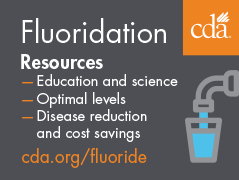Thursday, Jun 4, 2020
Congress passed the Paycheck Protection Program Flexibility Act
With strong bipartisan support, the Senate passed the PPP modifications that the House passed last week. New round of guidance will be issued by the Treasury and SBA. Here are the top 10 highlights:;
1) 8 week covered period extended to 24 weeks
2) 75% payroll rule reduced to 60%, Allowing borrowers to use 40% of PPP funds to pay for non-payroll expenses as opposed to only 25% and still be eligible for full forgiveness.
3) Rehire date moved from 6/30/20 to 12/31/20. By extending the rehiring deadline to offset the effect of enhanced Unemployment Insurance beyond June 30, 2020, this accounts for those businesses who have employees making more on unemployment and are facing a harder time rehiring staff as a result.
4) Required FTE goal for the rehire exemption is reduced if you are unable to rehire people or business has declined due to HHS, CDC, or OSHA requirements regarding COVID-19
5) New PPP loans will have a minimum maturity of 5 years
6) The forgiveness application will be completely changed.
7) Although utilities, health insurance, SUTA, and other small costs are still eligible, they become less important. Rather than worry about tracking small receipts, we are recommending focusing on the big items that are easy to show to the lender that’ll review the forgiveness application – payroll and rent.
8) Due to the 12/31/20 rehire date, practices typically won’t be filing forgiveness applications until January 2021 at the earliest.
9) Deferring payroll tax for PPP loan borrowers through Dec. 31, 2020. 50% of the deferred amount will be due Dec. 31, 2021, and the other 50% of the deferred amount will be due Dec. 31, 2022.
10) Although the ADA advocated for providing a grant or tax credit to borrowers who received PPP funds early and followed the rules for forgiveness to the letter, and also urged Congress to allow funds to be used to purchase personal protective equipment, the final bill did not include these provisions.
The ADA will continue to advocate for these issues and other policies that support dentists, dental team members and patients both during the pandemic and beyond.







